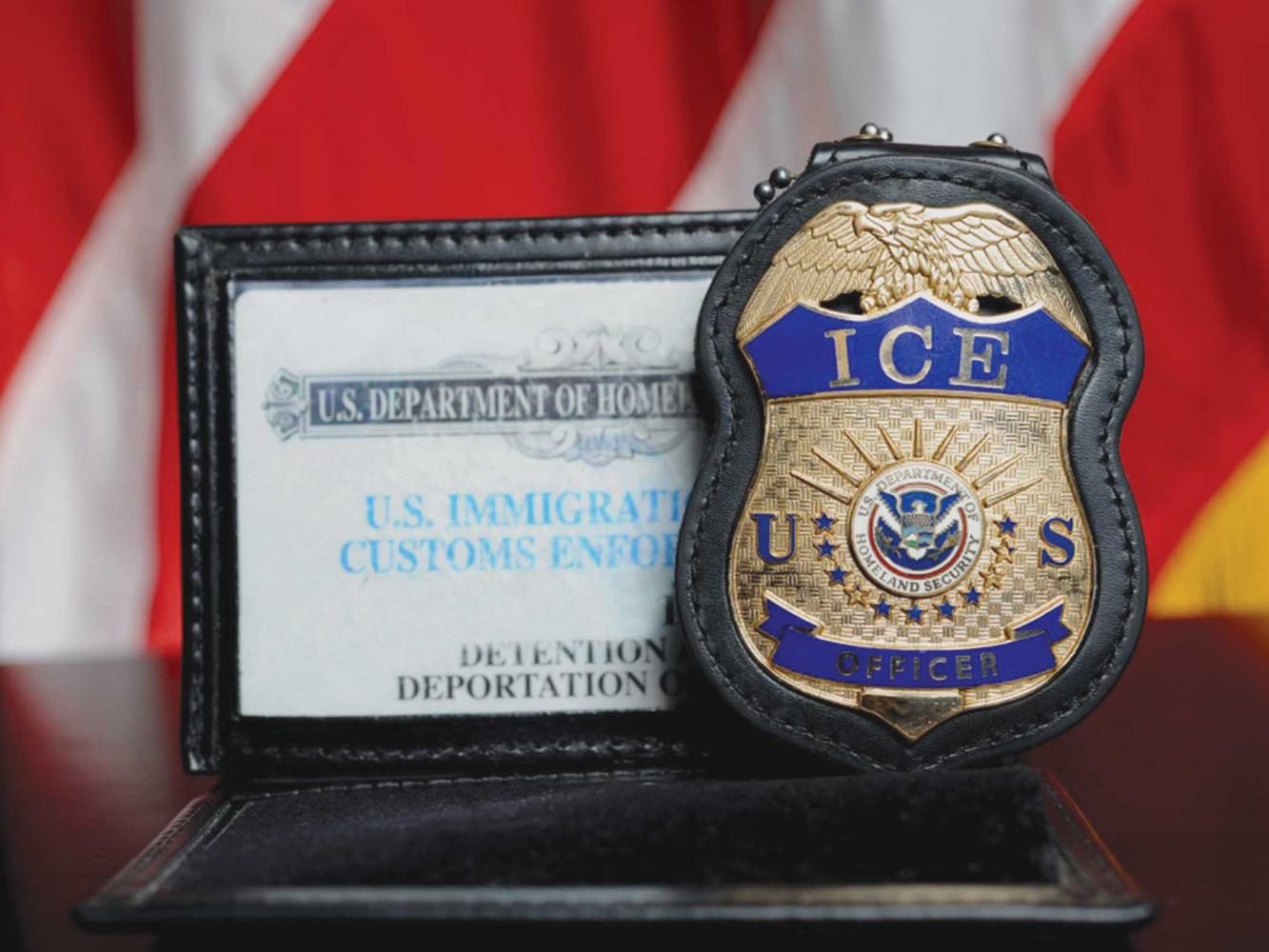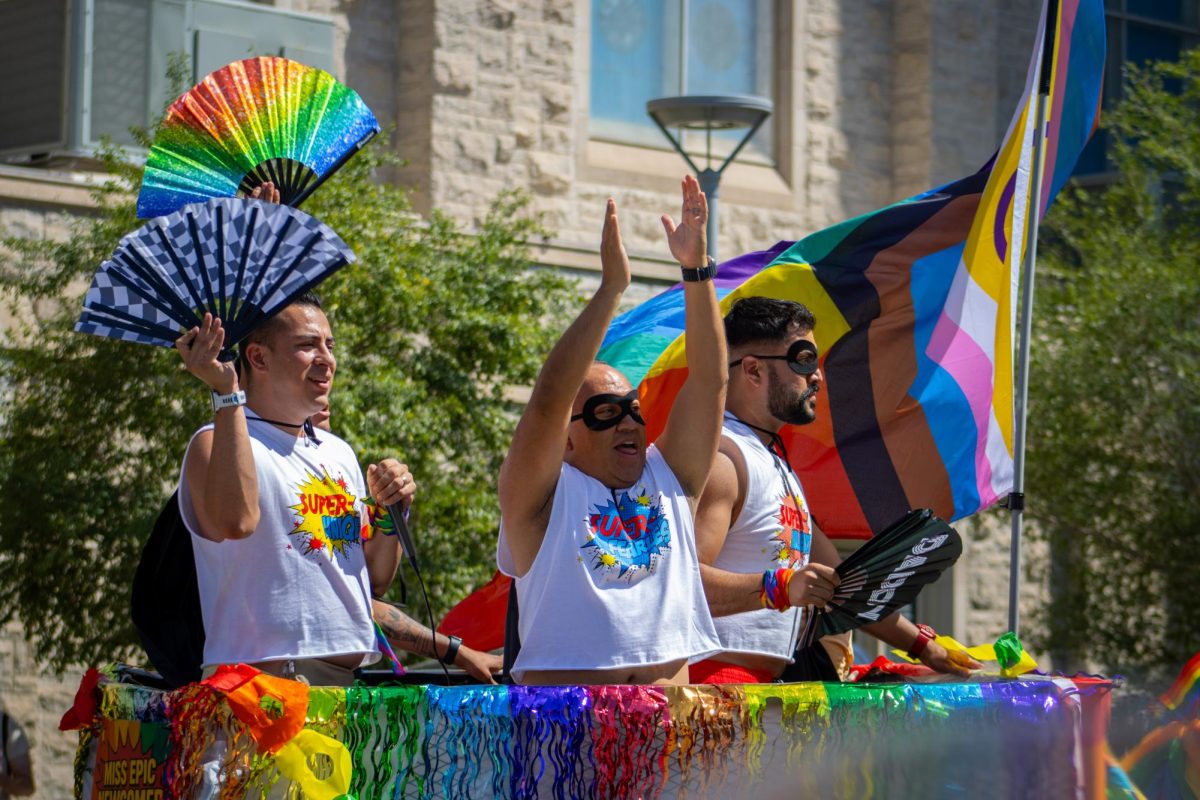While the Department of Homeland Security prepares to hire 15,000 new officers for Immigration and Customs Enforcement and Customs and Border Protection, Josiah Heyman, director of the Center for Inter-American and Border Studies and professor of anthropology, cautions that dramatic systematic reform is necessary to avoid corruption and abuse that has marred the last surge of hiring.
The American Immigration Council released a report on April 24 by Heyman titled “Why Caution is Needed Before Hiring Additional Border Patrol Agents and ICE Officers.”
Earlier this year, through two executive orders, President Trump called for an increase of Customs and Border Patrol officers by 5,000 and Immigration and Customs Enforcement agents by 10,000
In the report, Heyman gives an easy to digest account of the increase in agents that corresponds with an increase of abuse and corruption. From 1999 to 2016, Border Patrol expanded from 4,297 agents to 19,828, and between 2006 and 2009, the department nearly doubled. Consequently, arrests of Border Patrol employees for civil rights violations, misconduct and off-duty crimes had a 44 percent increase from 2007 and 2012, according to the Associated Press.
The pattern of abuses by both CBP and ICE has been well documented. In a 2013 survey of 1,095 deported Mexicans by the Immigration Policy Center, which Heyman was one of three authors, found that 11 percent reported physical abuse and 23 percent reported verbal abuses by U.S. authorities. While ICE only made up for 11 percent of both physical and verbal abuse, CBP made up 67 percent and 75 percent, respectively.
The ACLU of New Mexico Regional Center for Border Rights, and ACLU of Texas, alongside the Southern Border Communities Coalition, filed an administrative complaint to CBP on behalf of 13 individuals, who upon crossing from Mexico into the United States at ports of entry, were subjected to verbal and physical abuse, including an 11-year-old boy who got a hairline fracture of his arm.
Heyman points out that a 2011 study of the CBP workforce by the Homeland Security Studies and Analysis Institute found that there existed a “code of silence–an unwritten rule not to report another colleague’s errors, misconducts or crimes.”
James Tomsheck, chief of internal affairs at CBP until he was ousted in June of 2014, told the Center for Investigative Reporting that Border Patrol suffers from “institutional narcissism,” with a “self-identity of a paramilitary border security force and not that of a law enforcement organization.”
Heyman argues that while CBP is discussed more than ICE, the latter has the same systematic problems of abuse since ICE regularly recruits from CBP. The New York Times reported that ICE agents and contract guards, who are responsible for detaining and deporting undocumented immigrants, have been “arrested and charged with beating people, smuggling drugs into detention centers, having sex with detainees and accepting bribes.”
Much of the issues of corruption and abuse of power can be partly attributed toward inadequate hiring methods, Heyman argues.
Heyman gives the example of Border Patrol agent Justin Tackett in San Diego, who shot and killed U.S. citizen Valerie Tachiquin, but did not report the incident until almost a week later.
Tackett previously resigned from the county sheriff’s office after facing a termination notice that labeled him unfit for the job, citing “notice cited “unprofessional conduct, dishonesty, violation of or refusal to obey reasonable regulations, insubordination, violation of rules, incompetence and failure to follow proper procedures of arrest…” Heyman writes, “Yet in admitting him as an agent, the Border Patrol either failed to obtain this information or was aware, but ignored it anyway.”
Failure to conduct basic background checks has also allowed criminal organizations to infiltrate CBP. In a Texas Observer exposé, they revealed that this was largely due to the post-9/11 creation of the Department of Homeland Security, which merged 22 agencies, including border patrol, and left roughly 200 internal affairs investigators responsible for over 220,000 employees. Agents, who were suspected of being paid by cartels, went uninvestigated, and the DHS Office of Inspector General, which was tasked with rooting out corruption of the largest law enforcement agency in the country, became a “black hole of bureaucracy.”
Heyman cites the Homeland Security Advisory Council, which reports that, “the true levels of corruption within CBP are not known, nor is there an evaluation based on sophisticated risk analysis. This means that pockets of corruption could fester within CBP, potentially for years.”
The call for 15,000 agents also comes at a time when there has been a drastic decrease in apprehensions of unauthorized immigrants, and over half of those crossing are from Central America, who are fleeing prosecution and violence and actively seeking out CBP to plead for asylum.
Heyman instead advocates for revamping the overloaded immigration court systems, which have an average wait time of nearly two years.
To read the full report by Heyman, visit americanimmigrationcouncil.org/research/why-caution-needed-hiring-additional-border-patrol-agents-and-ice-officers.









